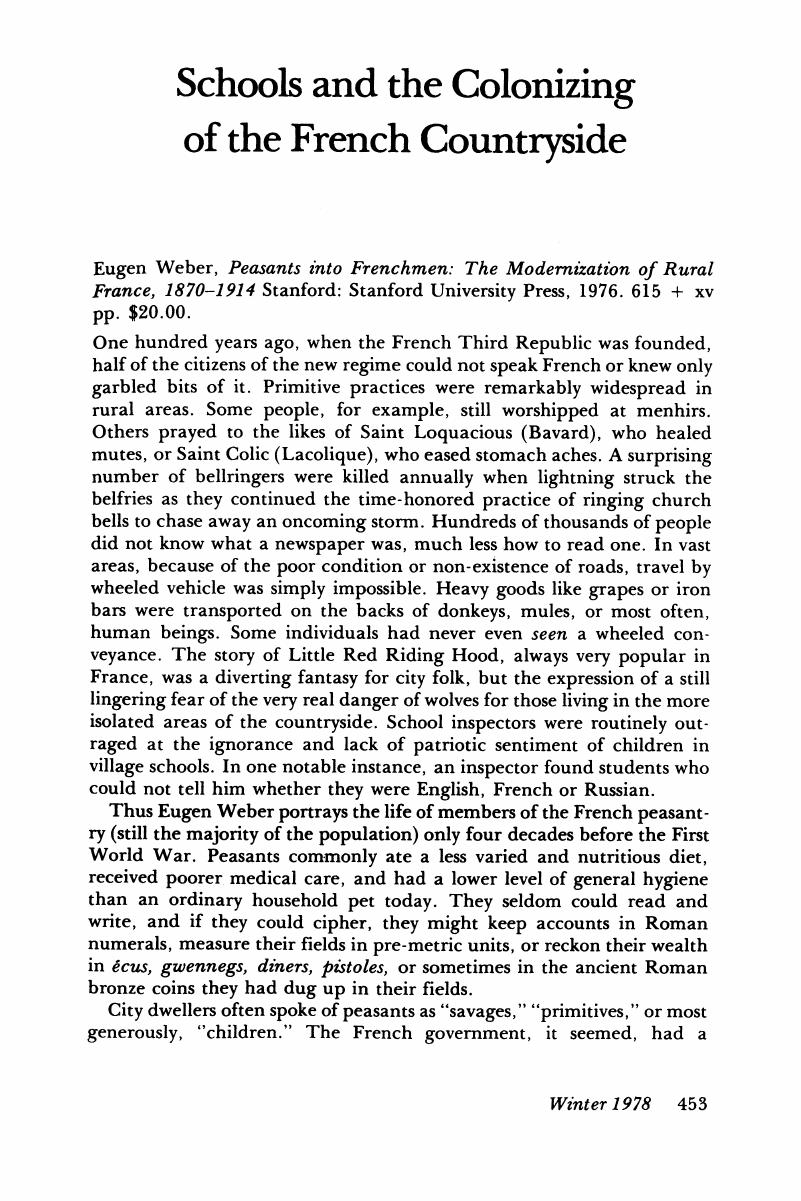No CrossRef data available.
Published online by Cambridge University Press: 24 February 2017

1 Wright, Gordon, Rural Revolution in France (Stanford, Calif., 1964).Google Scholar
2 The best recent study in French is the four-volume Histoire de la France rurale under the direction of Duby, Georges. See especially the third volume, Apogée et crise de la civilisation paysanne, 1789–1914 (1976). The illustrations in this work are quite remarkable.Google Scholar
3 For a highly readable more general account dealing with the process of modernization in Europe as a whole in the same period see, Tannenbaum, Edward R., 1900: The Generation before the Great War (1976).Google Scholar
4 Bourdieu, Pierre and Passeron, J.-C., Les Héritiers: les étudiants et la culture (1964), and La Reproduction: éléments pour une théorie du système d'enseignement (1970). A translation of the latter work has been published as Reproduction in Education, Society and Culture (Sage Publications, 1977).CrossRefGoogle Scholar
5 We still do not have for France a study as good as Altick's, R.D. English Common Reader: A Social History of the Mass Reading Public, 1800–1900 (1957), but Weber's book along with Zeldin's (see below) helps to fill that gap.Google Scholar
6 Zeldin, Theodore, France, 1848–1945. Vol. I: Ambition, Love and Politics (1973); Vol. II: Intellect, Taste and Anxiety (1977). Zeldin's two thousand pages deal with urban as well as rural culture, elite as well as mass education.Google Scholar